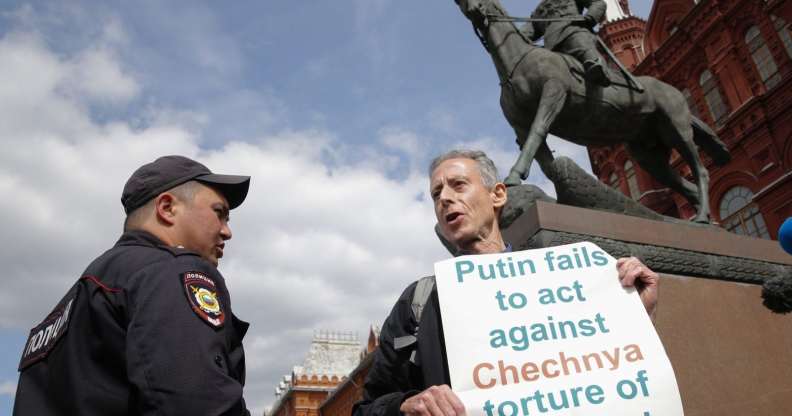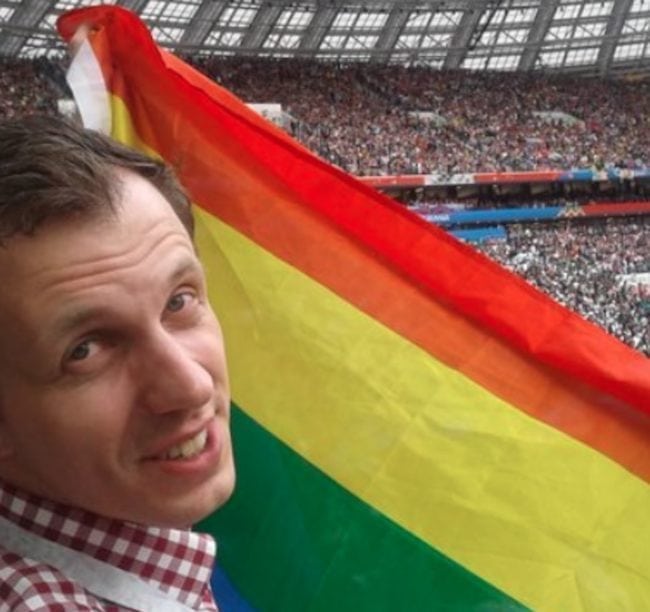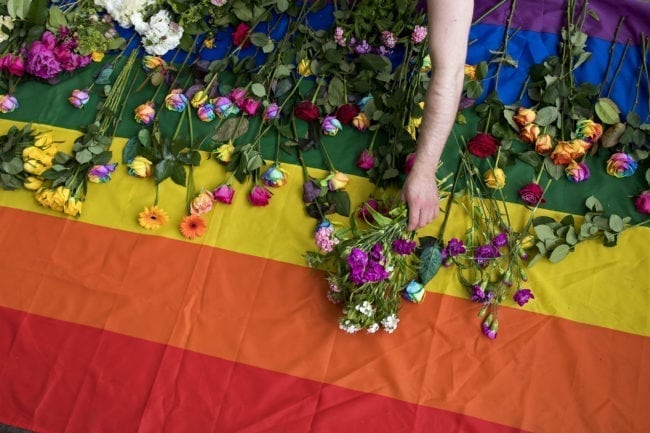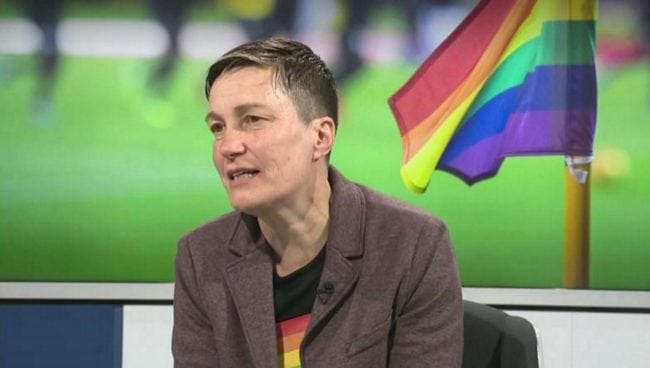Russia’s LGBT community are worried what will happen after the World Cup

British gay rights activist Peter Tatchell stages an anti-Putin protest against the mistreatment of LGBT people in Russia. (MAXIM ZMEYEV/AFP/Getty)
LGBT people in Russia are worried that the relaxed policing towards the community will end after the World Cup is over.
The head of the Russian LGBT Sport Federation, Aleksandr Agapov said authorities have been relaxed in applying the country’s “gay propaganda” laws during the tournament, according to the Press Association.
Football fans, including England spectators, have been able to bring pride rainbow flags into stadiums so far – which was promised before the tournament by Fifa and the Russian football association.

Alexander Agapov with his flag
Agapov told the Press Association that he was unsure if the World Cup would have any lasting legacy, and said authorities were making the issue one of “hospitality” rather than human rights.
He said: “In a way it is very good that Russia shows its opportunity, its possibility to be so open and inclusive but for me as an LGBTI person it is a huge question whether we will have a positive legacy of the World Cup when the World Cup is over.”
Agapov also highlighted the hypocrisy of the officials, relating to a law passed in 2013, which bans the promotion of “non-traditional sexual relations” to under 18s.

Demonstrators lay roses on a rainbow flag as they protest over an alleged crackdown on gay men in Chechnya outside the Russian Embassy in London on June 2, 2017. (JUSTIN TALLIS/AFP/Getty Images)
“So it was the case for implementing the anti-gay legislation. On other days I’m pretty sure this legislation would have been applied in this case.
“The anti-gay legislation is still there, nobody is going to cancel it.”
A group of LGBT England fans travelled to Russia but said they were apprehensive about the trip.

Di Cunningham (di cunningham/facebook)
The Three Lions Pride group received threatening anonymous emails, including a warning that they would be “stabbed” if they made the journey to the tournament.
Despite the warning, Norwich fan Di Cunningham, unfurled an LGBT England flag during their first match against Tunisia.
Before the World Cup, the government warned fans that “public attitudes towards LGBT+ people are less tolerant than in the UK,” before directing them to guidance published by the Football Supporters’ Federation which “strongly encouraged supporters to “not publicly display your sexuality.”

